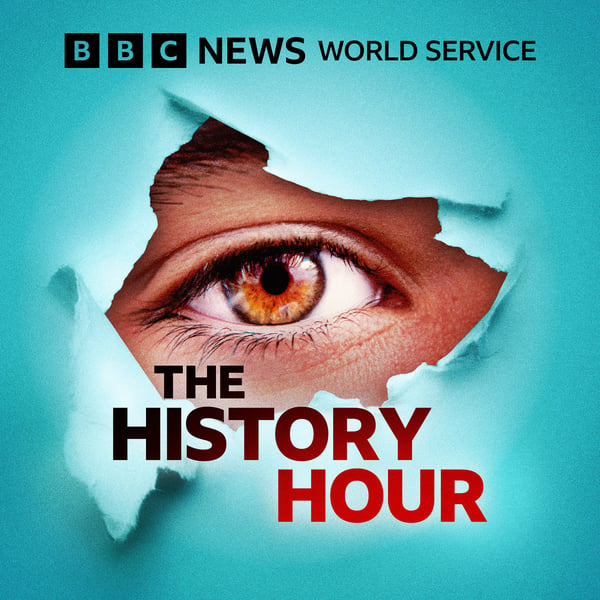Ireland's 'ghost estates' and the first Rose of Tralee
The History Hour
BBC
4.4 • 879 Ratings
🗓️ 25 August 2023
⏱️ 51 minutes
🧾️ Download transcript
Summary
Max Pearson presents a collection of Witness History stories from the BBC World Service, this week we are focusing on Irish history.
In 2006, Ireland’s economic boom, known as the Celtic Tiger, ended. It meant thousands of people, like Michelle Burke, were left devastated as house construction stopped.
In 1959, Tralee, in Ireland, hosted a festival to promote the town and build Irish connections around the world. The Rose of Tralee is now one of Ireland’s oldest and largest festivals.
Veteran RTE broadcaster and author, Joe Duffy, walks us through the significance of the Celtic Tiger.
At Easter 1916, a small army of Irish rebels attempted to start a revolution against British rule. They held out for more than a week against a massive British military response, but the insurrection ultimately failed.
Also, how electrification lit up rural Ireland for the first time, despite concerns about its potential dangers.
And how a group of women fought against a sexist tradition, that prevented them from taking a dip in a popular swimming spot.
Contributors: Michelle Burke - lived through the Celtic Tiger boom and bust. Alice O’Sullivan - first Rose of Tralee winner. Joe Duffy - broadcaster and author. Mary Dorcey - poet, writer and women’s rights activist.
(Photo: Deserted 'ghost estate' in Ireland. Credit: Tim Graham/Getty Images)
Transcript
Click on a timestamp to play from that location
| 0:00.0 | That 56 seconds it took me to swim that gold medal win. I looked for that feeling for 30 years and I never found it. |
| 0:12.0 | A podcast about the people behind the medals. |
| 0:15.8 | On the podium from the BBC World Service. |
| 0:18.6 | Find it wherever you get your BBC podcasts. Podcasts. Hello and welcome to the History Hour Podcast from the BBC World Service with me Max Pearson the past brought to life |
| 0:35.0 | by those who were there coming up the archives tell the story of the Easter rising in |
| 0:40.2 | 1916. A number of men came into the room dressed in green uniforms with rifles in their hand. |
| 0:47.0 | They ordered everybody out to get out immediately. |
| 0:50.0 | Also, rural development in Ireland as electricity comes to remote villages in the late 1940s. |
| 0:57.0 | Always wanted it. I thought we'd never get it. I have a married sister in the town and she's had electricity in the house ever since she got married and I've always envied her. |
| 1:06.5 | Plus the feminist swimmers who invaded what was a male-only swimming venue to force change and we hear from the very first rows of |
| 1:14.4 | tralee. It's really an overwhelming moment to be chosen and I didn't think at all |
| 1:20.1 | that I would be. That's all coming up later in the podcast, but we're going to begin with the turbulent times around the turn of this century when Ireland's economic boom of the late 1990s eventually unraveled. The dramatic crash that followed left a landscape dotted with unfinished |
| 1:36.2 | ghost estates. Vicky Farncombe has been speaking to someone caught in the middle of that economic |
| 1:40.8 | storm. It's the late 1990s and a mix of foreign investments, low corporate taxes and European subsidies |
| 1:55.3 | have helped Ireland go from being one of the poorest countries in Western Europe |
| 1:59.4 | to one of the wealthiest. |
| 2:00.9 | The sudden riches |
| 2:03.6 | in outrageous tales of excess as people on Twitter shared. |
| 2:08.2 | At 15, me and six of the girls took a stretch hummer to see the pussycat dolls at the point. |
| 2:14.0 | I remember being offered a thousand quid to work on New Year's Eve 1999 |
| 2:18.0 | and turning it down. |
| 2:19.0 | When my brother went to the cinema on his own, he would buy three tickets so he wouldn't have anyone sitting either side of him. |
... |
Please login to see the full transcript.
Disclaimer: The podcast and artwork embedded on this page are from BBC, and are the property of its owner and not affiliated with or endorsed by Tapesearch.
Generated transcripts are the property of BBC and are distributed freely under the Fair Use doctrine. Transcripts generated by Tapesearch are not guaranteed to be accurate.
Copyright © Tapesearch 2025.

